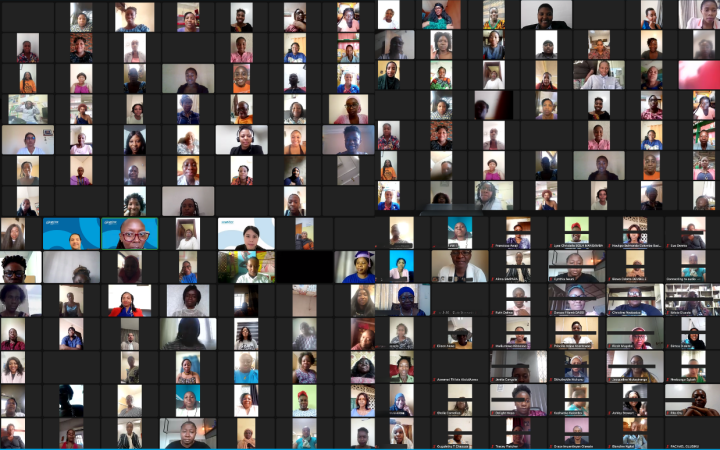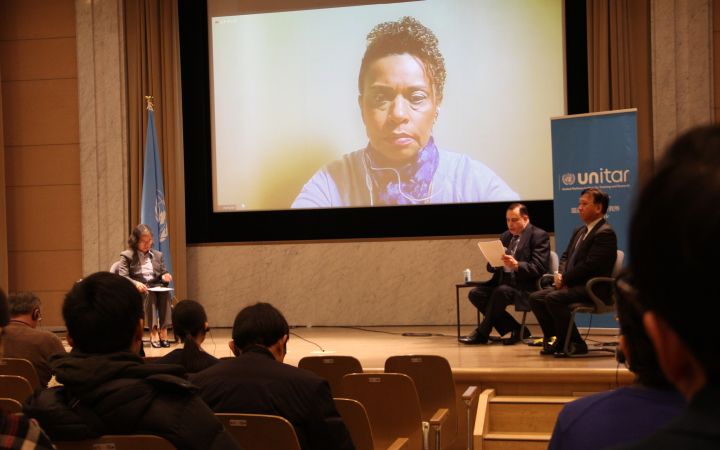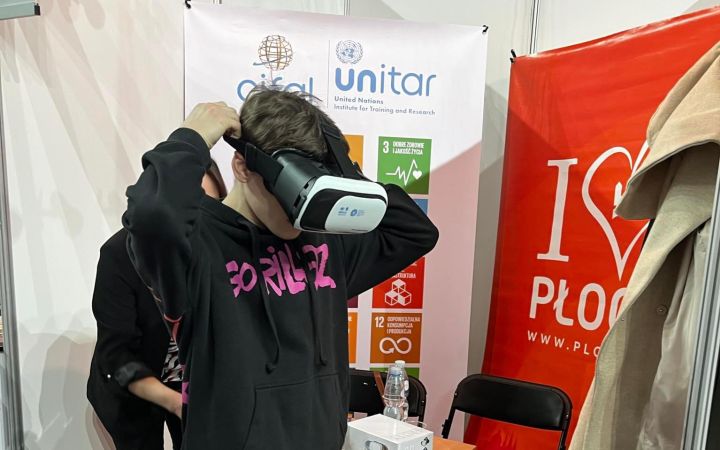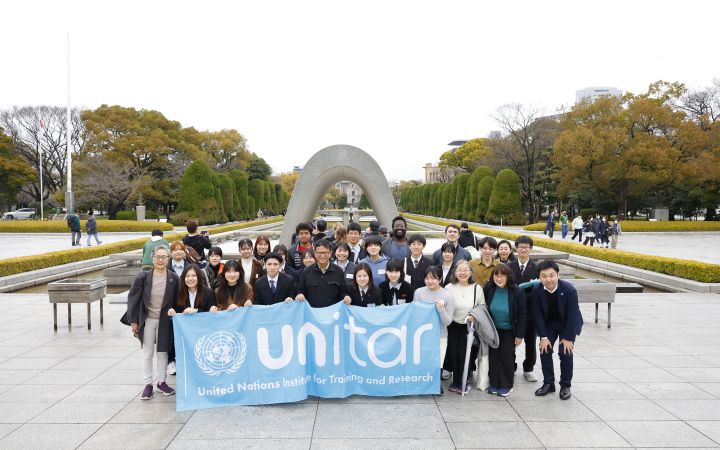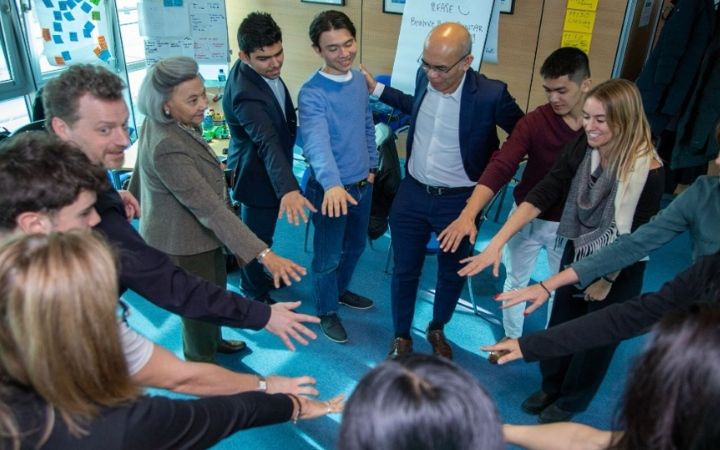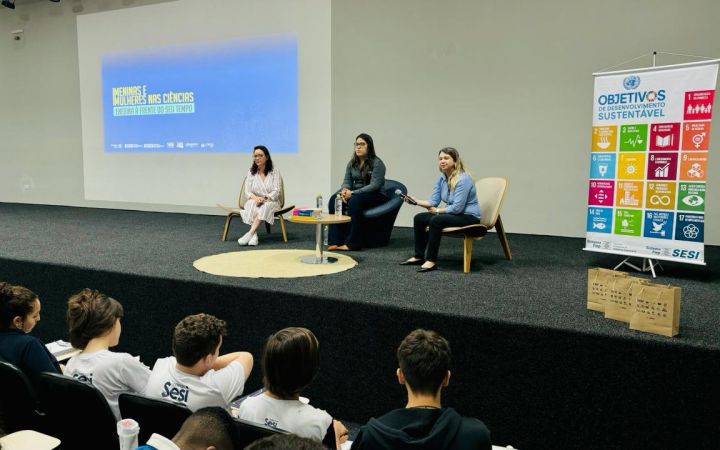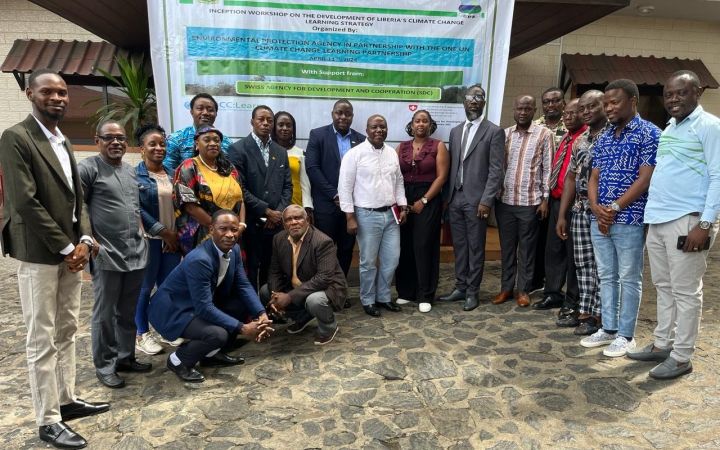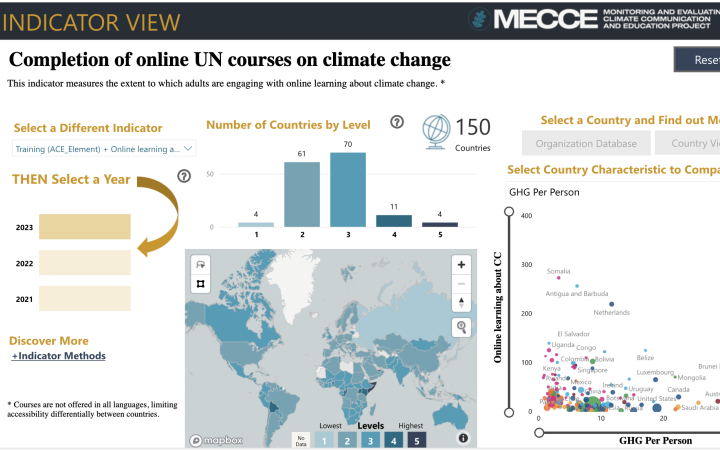Displaying 321 - 330 of 2485
19 April 2024, Addis Ababa, Ethiopia – United Nations Development Programme (UNDP), United Nations Institute for Training and Research (UNITAR) Division for Prosperity, and with the generous support of the Government of Canada, commemorated the graduation of over 2,000 women from the Advancing Gender Equality and Women Empowerment 2023 Online Entrepreneurship and Financial Literacy Training Programme on 11 April 2024. The virtual event was attended by 500 graduates from the Southern African Development Community (SADC), the Economic Community of West African States (ECOWAS), and the Economic Community of Central African States (ECCAS).
25 April 2024, Hiroshima, Japan – On 10 February 2024, the UNITAR Hiroshima Office and UNITAR Association held the public forum “Nuclear Disarmament and Sustainable Peace” at the Hiroshima Peace Memorial Museum. The forum aimed to deepen public understanding about nuclear disarmament, especially given the current armed conflicts in Ukraine and in Gaza, and about achieving sustainable peace.
24 Abril 2024, Ginebra, Suiza - La Organización de las Naciones Unidas para la Alimentación y la Agricultura (FAO) y el Instituto de las Naciones Unidas para Formación Profesional e Investigaciones (UNITAR) se complacen en anunciar el próximo curso conjunto en línea sobre "Comercio, Seguridad Alimentaria y Nutrición" para representantes de gobiernos y autoridades que están directamente involucrados en la formulación e implementación de políticas y programas agrícolas en los países de América Latina y el Caribe.
19 April 2024, Plock, Poland – The International Training Centre for Authorities and Leaders (CIFAL) in Plock conducted different road safety activations during the Plock Career and Professional Activity Fair. Employers, entrepreneurs and labour market partners, as well as youngsters participated in the Fair at the Orlen Arena on 18 April 2024.
19 April 2024, Hiroshima, Japan – The United Nations Institute for Training and Research (UNITAR) Executive Director and United Nations Assistant Secretary-General Nikhil Seth visited Japan from 25 to 28 March 2024.
17 April 2024, Geneva, Switzerland – On 15 and 16 February 2024, UNITAR hosted a hackathon and conference “Leveraging the Digital Economy for Inclusive and Sustainable Economic Growth: Strategies to Overcome Risks and Harness Opportunities”. The event brought together nearly 270 people (43 in person and 222 online) to foster collaboration and inspire action to address the opportunities and challenges in the digital economy.
12 April 2024, Curitiba, Brazil – Throughout March, the International Training Centre for Authorities and Leaders (CIFAL) in Curitiba jointly with the Education Management and the Social Responsibility Council of the FIEP Group conducted the "Girls in Science" project, which aims to encourage girls' participation in STEM fields (science, technology, engineering, and mathematics).
April 12, 2024, Monrovia, Liberia - Liberia took an important step towards ramping up climate change education. The country organized an inception workshop, which brought together key partners, such as UN CC:Learn, to kickstart the development of the country’s National Climate Change Learning Strategy.
11 April 2024, Geneva, Switzerland - UN CC:Learn and the Monitoring and Evaluating Climate Communication and Education Project (MECCE) are shedding light on the state of online climate change learning among adults worldwide.


